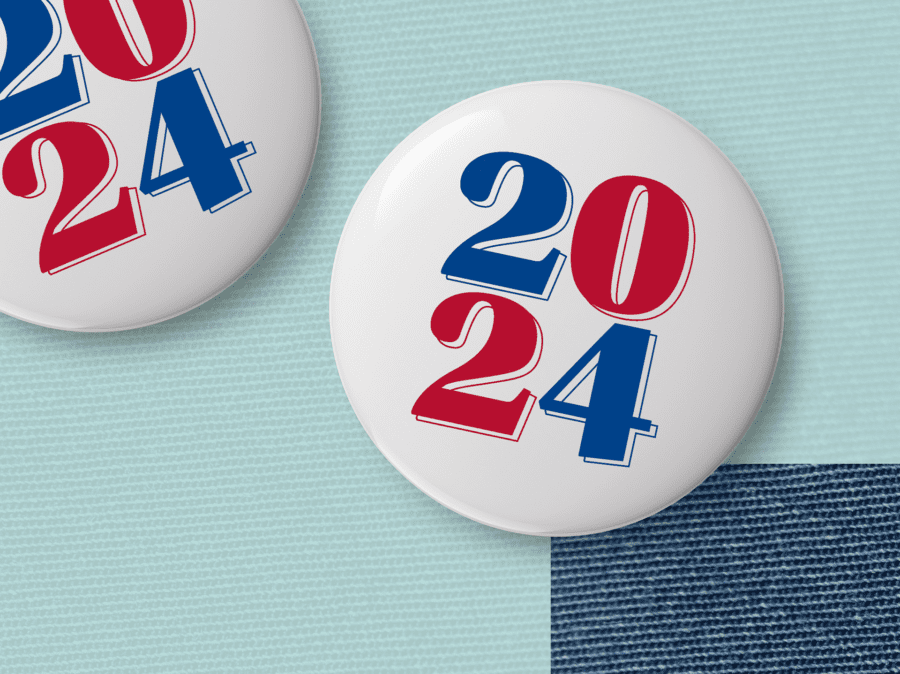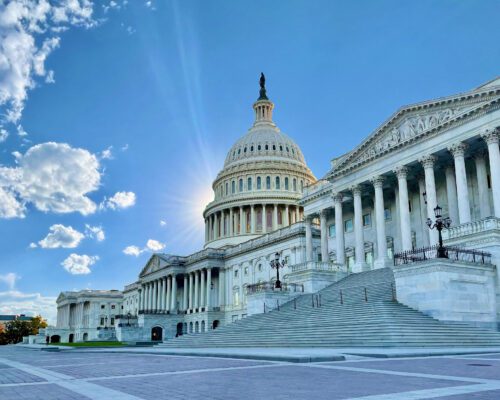No Perfect Party
Prudence & Principles for Stewarding Our Vote
Political parties have become an all-consuming identity in American culture. They are used to sort, characterize, and even vilify others. Godly men and women, committed to what God’s Word teaches about life, religious liberty, marriage and family, and human dignity, will use wisdom to make different choices regarding which candidates and policies they vote for. Understanding this will help us treat one another with kindness and be able to love one another across our differences, even as we have honest discussions about the implications of the gospel on all of our lives. To help foster constructive conversations with one another, we’ve asked four Christians with different voting patterns and principles to expound on how they makes their decisions. May it help you as you interact with fellow church members, family, friends, and neighbors this election season.
Republican Party, Part 1 of 4
American Solidarity Party, Part 3 of 4
Independent, Part 4 of 4
Lindsay Nicolet: How should Christians think about engagement in the political space?
Justin Giboney: We have to think about it as a matter of stewardship. As citizens, we’ve been given a certain amount of influence, and we need to use that influence pursuant to loving our neighbors as ourselves. So, engaging is really about stewardship. I think most people should engage; I can’t say that you always have to, but I would say that it seems like poor stewardship if we don’t. From there, it’s how do we steward? I think that’s with compassion and conviction, making sure that we’re upholding what we know about God’s design while loving others, especially the most vulnerable.
LN: At the ERLC, our issue set includes life, religious liberty, marriage and family, and human dignity. What issues in politics are important to you, and why?
JG: All the issues you named are very important to me. I would add, especially right now, housing, poverty in general, and racial justice. If we look at the disparities through a historical context, it’s clear that we have more work to do. So, I focus in on those along with voting rights and things of that nature.
LN: You have voted as part of the Democratic Party. As you think about who you’re going to vote for, why is it important to you to sometimes be a part of that party?
JG: I don’t know if I would say it’s important for me to be a part of the Democratic Party. For me, it’s a matter of strategy. I don’t put my identity into a party. If there’s a strategic way that I can advance the things we were talking about before, or I can reach more people based on which party I am voting within, then I’ll do that. That doesn’t mean I think the parties are equivalent on every or any issue. I don’t think it’s important to be a Democrat. I just think there’s an advantage to it from my social positioning.
LN: How do you think being a Christian influences being a part of the Democratic Party from a strategic point of view?
JG: With all of its issues, and it certainly has issues, I think the Democratic Party historically has focused in on civil rights issues like voter rights. And I think that’s a matter of agency. If our government is going to tell people that their vote matters, then we need to make sure that’s the case. It also gives me an opportunity to speak up on issues that the party wouldn’t usually talk about. So, I get to talk about religious liberty to people who might not listen to it from somebody on the other side. I get to talk about the sanctity of life with the credentials to speak in that way on those issues within a space that might be left-leaning.
LN: Are there other ways your Christianity can have an effect on the party in which you vote, influencing them for good?
JG: When you see people in need, you have to look at what needs they have. Again, housing is a major issue, and as Christians, I think we have to care about that. I’m in the city of Atlanta, so when we work on that locally, it’s good to have connections with people, whether they are spiritual connections or partisan connections. At the end of the day, civic engagement is all about glorifying God by serving and helping people flourish.
LN: As a Christian, if you’re not addressing the practical needs of people, how do you think your witness is hindered?
JG: I think people view our faith as very limited or even self-interested in that we only fight for Christendom and issues that are viewed as ideologically conservative. Whereas, there’s a variety of issues that I think our Christianity should drive us to speak into. We can’t do all of them all the time. But that’s why we’re a body, and that’s why some people in the body may be focused on one thing, while others focus on another. We have to be careful when we make everything about one particular issue—not that we can’t prioritize issues, but usually these issues are not on an island. So, if we want to have an impact, it’s usually from a number of angles.
LN: How would you answer others, specifically Christians, who might disagree with you?
JG: I don’t always vote for the Democrat, but when I do, it’s usually based on a cost-benefit analysis of who is the best based on the issues that I have prioritized. I would agree that it would be unfaithful if I vote for somebody who is pro-choice, and then I am not vocal about my disagreements on that issue or if I defend everything they do. Regarding candidates, we have to make the best judgment that we can. I don’t think voting for a Democrat is clearly more problematic than voting for a number of Republicans for a lot of reasons. But I don’t just assume that I need to vote for the Republican or for the Democrat. I vote based on the merits of the candidate, which has caused me to vote for people in both parties at times.
LN: How do you reconcile the imperfections of the candidate you’re voting for?
JG: If somebody is pro-choice and that was their only issue, I probably wouldn’t vote for them. But, usually there are a number of other issues where we do have some agreement. I understand the brokenness of the world and that no candidate is going to match what I want exactly. If I was looking for that, I guess I probably wouldn’t vote at all. But we tend to put those types of standards on the other side without necessarily putting them on our side. Instead, we defend or justify the negative aspects that might cause a Christian to have some pause about the people we’re voting for. I think people have a right to disagree about which candidate best fits Christian values. It’s an important question to ask, but we also need to be honest about how we’re making that assessment for ourselves and the shortcomings of our candidate of choice.
LN: What would you say to Christians as they are engaging with other genuine believers who have different opinions and come to varying conclusions?
JG: I would remind them of the praying Pharisee who exalted himself while at the same time coming against the tax collector and saying he was glad he wasn’t like the tax collector. But only one of them walked away being justified. And it wasn’t the Pharisee. I don’t want to get into any relativism here. There are clearly issues that Christians need to be on the same page about. I think the sanctity of life is one of those. But again, those issues aren’t on an island. Christians need to at least hear people out first.
As citizens, we’ve been given a certain amount of influence, and we need to use that influence pursuant to loving our neighbors as ourselves.
Justin Giboney
One of the mistakes we make is that we try to argue with someone without even knowing the good that they’re attempting to achieve. I don’t think most Christians, in the issues that they choose to support, are trying to be sinister and wrong. If you can’t articulate the good they’re trying to achieve, even if you disagree with their conclusion, then you really don’t know their side of the argument. And you’re usually arguing against misrepresentations and caricatures. We spend far too much time doing that. So, I would say hear people out and remember that you can get things wrong too. We need to engage each other with a little more charity.
LN: What encouragement would you offer Christians in an election year, but also for political engagement in general?
JG: I would try to make sure when we’re engaging others, that we’re seeing people and not political abstractions. The folks that are in your opposition have stories. They’re dealing with the human condition just like you are. Some are dealing with heartbreak, some are dealing with addiction, etc. So you can’t identify someone just based on their vote. It really doesn’t tell you as much about people as you might think. If Christians truly think of it that way, we’d be less polarized because we’d have a little more grace for others and be a little more willing to listen.










